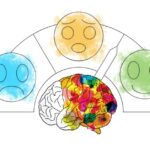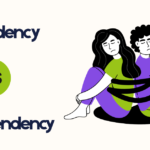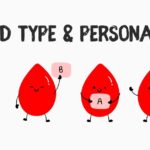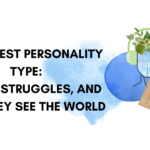Why This Difference Matters
You’re going through something heavy. A breakup, burnout, grief—doesn’t matter what. And someone, probably well-meaning, says, “At least it’s not worse,” or “Everything happens for a reason.” You nod politely… but deep down, it stings. You don’t feel seen. You definitely don’t feel comforted. And now, on top of the pain, you feel a little bit alone.
That moment? That’s often the gap between sympathy and empathy. Most of us blur the two without realizing it. They both sound kind. They both come from good intentions. But they land very differently. One might create distance, the other builds a bridge.
And this isn’t just about being “nicer” or “more sensitive.” Understanding the difference can transform the way we show up in relationships, how we lead teams, support friends, raise kids—even how we treat ourselves.
In this blog, we’ll unpack empathy and sympathy with real-life clarity. We’ll explore how they differ, where they overlap, and why it’s so important to know when you’re offering one versus the other. Whether you’re navigating emotional terrain in your personal life or trying to lead with more heart at work, this matters. Let’s get into it.
Defining the Basics: What Are Empathy and Sympathy?
Picture this: your friend just lost someone close. They’re curled up on the couch, eyes heavy, grief written all over their face. You sit down beside them. Now comes the moment that matters — not what you say, but how you show up.
If you say, “I can’t imagine how hard this must be. But I’m here. You’re not alone,” — that’s empathy.
If you say, “I’m really sorry for your loss… but at least they had a good life,” — that’s sympathy.
Both come from a good place. Both want to help. But here’s the core difference: empathy leans in, sympathy steps back.
Empathy quietly sits with the pain. It doesn’t judge it, fix it, or dress it up. It simply says, “I’m here in this with you.”
Sympathy, though well-meaning, often stays at arm’s length. It sees the hurt — but instead of stepping in, it tries to smooth it over. “Look on the bright side” or “It could be worse” are classic examples.
The truth? Most of us aren’t looking for a silver lining when we’re hurting. We’re looking for connection — someone who sees us, hears us, and doesn’t turn away.
And that’s why empathy hits different. It doesn’t just recognize emotion. It honors it. It makes space for it.
And that can be the most healing thing of all.
Let’s Break It Down: The Emotional Gap
Here’s a simple way to picture it. Imagine someone’s fallen into a deep, dark emotional well. They’re scared, hurting, overwhelmed.
Sympathy stands at the edge and calls down, “That looks rough. I’m sorry you’re going through that. Let me know if you need anything!”
Empathy climbs down the ladder, sits beside them, and says, “You’re not alone. I’m here with you. I get it — this is hard.”
See the difference?
Sympathy often comes from kindness but it can feel distant. When you’re hurting, someone saying, “At least it’s not worse,” or “Everything happens for a reason,” might sound like they’re trying to shut the feeling down instead of honoring it.
Empathy, on the other hand, requires more of us. It asks us to be present, not perfect. It means allowing ourselves to feel even if it’s uncomfortable. It means letting go of the urge to fix someone’s pain and just being with it.
That takes courage. Vulnerability. A willingness to not have all the answers.
But here’s the magic of empathy: when someone truly sits with us in our mess — not judging, not lecturing, just being there — it makes the mess feel less heavy. Less lonely.
And sometimes, that’s all we really need.
Why We Often Choose Sympathy Over Empathy
Let’s get real — most of us aren’t taught how to sit with pain, especially when it’s not our own. So when someone we love is hurting, our first instinct is to fix it. To say something that helps them “feel better.” To lift the heaviness, even just a little.
That’s where sympathy steps in. It’s like a safety net. It keeps us at a distance — close enough to show we care, but far enough that we don’t get pulled into the emotional storm.
You’ve probably said it, or heard it:
- “At least it wasn’t worse.”
- “Everything happens for a reason.”
- “Stay strong. You’ll get through this.”
These words sound supportive on the surface, but underneath, they carry a quiet message: “I’m not comfortable sitting with your pain, so let’s move past it.”
We don’t do this because we don’t care. We do it because we care so much, and we feel helpless. But here’s the truth — people don’t need us to fix their sadness. They just need us to show up in it.
Empathy is raw. It’s sitting in the dark with someone and whispering, “I don’t have the answers, but I’m here, and I’m not going anywhere.”
That’s not weak. That’s love in its realest form.
What Actually Happens in the Brain
Let’s talk about the brain for a second — not in a textbook-y way, but in a “wow, that makes so much sense” way.
When you feel empathy, your brain actually mirrors what the other person is feeling. The same regions that light up when you’re in pain — like the anterior insula and the cingulate cortex — light up when you see someone else hurting. Your brain says, “Hey, I recognize this. I feel it too.”
That’s why empathy can feel so heavy sometimes. You’re carrying a piece of someone else’s emotional load.
Sympathy doesn’t do that. It stays in the thinking part of the brain — it observes the pain, but doesn’t join it. That’s why sympathy can sound robotic, even when we mean well. It keeps us safe, but also separate.
The human brain is literally wired for connection. Empathy is how we bridge the emotional gap between “you and me.” And every time you choose to show up with empathy, you’re not just comforting someone — you’re reaffirming their humanity. That matters more than we realize.
The Quiet Power of Empathy
You know what stays with people?
Not the advice. Not the clever words. Not the silver linings.
It’s that one friend who didn’t rush you. Who let you cry without trying to stop you. Who just sat there — maybe holding your hand, maybe just breathing beside you — and let your world be heavy for a moment.
That’s empathy. And it changes everything.
It doesn’t take the pain away — it says, “You don’t have to carry this alone.” And that, sometimes, is all a person really needs.
In our fast, performance-driven world, we often mistake empathy as something soft, something optional. But here’s the truth: it’s one of the strongest human traits you can develop. Because it requires vulnerability. It means putting aside your own need to “say the right thing” and instead just being present in someone else’s storm.
At home, empathy creates safety. At work, it builds trust. In friendships, it builds intimacy. And within ourselves, it builds courage.
Empathy doesn’t need to be poetic. It just needs to be honest. It doesn’t need the right words — just the right heart.
Shifting from Sympathy to Empathy
So how do you actually do empathy? It’s not a personality trait — it’s a practice. A choice. Something you can get better at every single day.
Start here:
1. Stop trying to fix.
It’s tempting to offer advice. But most people don’t want answers — they want to feel understood. Before speaking, ask yourself: “Am I helping, or am I just trying to ease my own discomfort?”
2. Listen like it matters — because it does.
Put down your phone. Make eye contact. Say, “I’m here, talk to me.” Those little things? They’re everything.
3. Watch your words.
Skip the “at least…” lines. No one feels better after hearing, “At least it wasn’t worse.” Instead, say, “That sounds incredibly hard. I’m so sorry you’re going through this.”
4. Be okay with silence.
Not every moment needs to be filled. Sometimes, your calm presence is the healing.
5. Ask before assuming.
“How can I support you right now?” goes a long way.
Empathy isn’t about getting it right. It’s about showing up — fully, honestly, and without needing to save the day.
That’s how you become someone people feel safe with. And safe is rare.
7. The Kind of People We Remember
When life gets dark really dark we don’t remember the people who had the best advice. We remember the ones who stayed.
The ones who didn’t flinch when our voices cracked. The ones who didn’t look away when we broke down. The ones who said, “I don’t know what to say, but I love you, and I’m here.”
That’s what empathy gives us: safety, softness, and the feeling of not being alone in the mess.
You don’t have to be a therapist, a healer, or someone who always knows what to do. You just have to care enough to show up, even when it’s uncomfortable.
If you can be that kind of person — the one who listens deeply, holds space gently, and lets people feel without rushing them through it — then you’re doing something truly powerful.
And the world needs more of that.
Let me leave you with this — if you take anything away from all of this, let it be this:
Choose empathy. Every single day.
Not because it’s easy. Not because it looks good. But because it matters more than you know.
Be the friend who listens without judging. Be the sibling who says, “I may not get it, but I’m with you.” Be the co-worker who checks in when someone seems off. Be the stranger who smiles gently at a tired soul in public. Small things. Real things. They ripple.
You don’t need the perfect words. You just need a willing heart.
You don’t have to heal others. Just hold space for them while they heal.
You don’t need to always understand someone’s pain. Just believe it exists.
This world is loud with performance, opinions, and quick fixes. Be someone soft. Be someone real. Be someone safe.
And when someone trusts you with their hurt? Don’t offer answers.
Offer presence. Offer warmth. Offer your full, quiet, honest self.
That’s empathy. And it changes lives starting with yours.
So go on. Be that one rare soul who feels deeply and loves loudly.
We need more of you in this world.
A passionate psychologist on a mission to make psychology insightful, relatable, and engaging! From mental health to human behavior, I break down complex ideas into thought-provoking reads for curious minds.





















